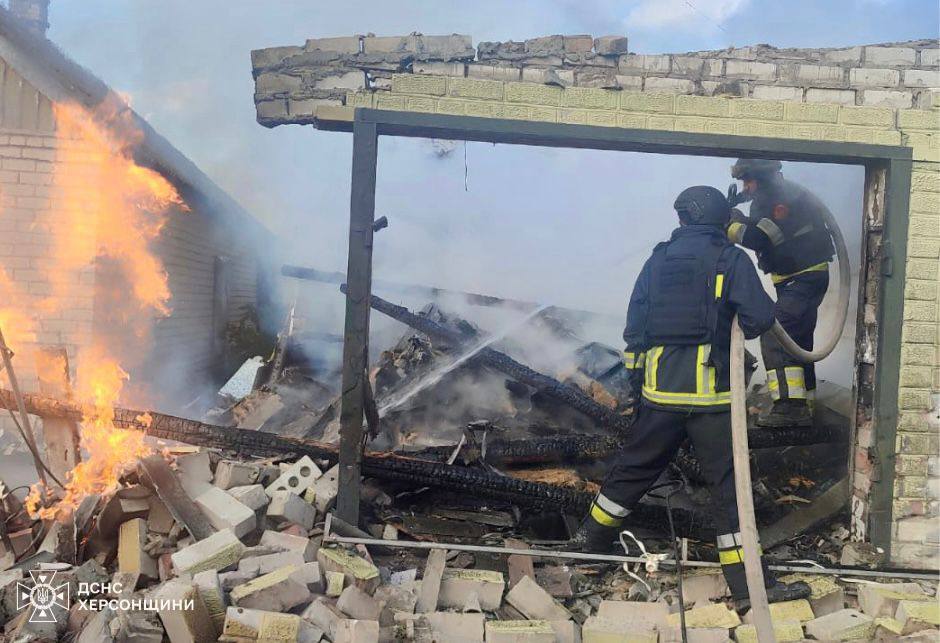Russian artillery strikes kill three in Kherson, wound a child
Artillery shells hit high-rises in Kherson and multiple residential buildings in nearby rural areas on Sunday.


Russian forces launched a series of artillery attacks on Kherson city on Sunday, killing three people and wounding several others, including a 13-year-old boy, local officials reported.
Kherson, located on the western bank of Ukraine’s largest Dnipro river, suffers from daily Russian shelling across the river. It was the only Ukraine’s regional capital Russians managed to occupy during their 2022 invasion, but later, Ukrainian forces liberated the city.
According to Oleksandr Prokudin, head of the Kherson Oblast Military Administration, the attacks targeted residential areas in the Central district, with multiple strikes hitting apartment buildings.
A 50-year-old woman and a 74-year-old woman were killed on the spot after shells hit a high-rise building. Russian shells struck an apartment building, causing fires on the 6th and 7th floors. Firefighters evacuated three civilians from the 8th floor. In addition, the State Emergency Service reported that rescuers found a male body at the impact site after extinguishing fire.
A 13-year-old boy sustained explosive and traumatic brain injuries, as well as shrapnel wounds to his leg. A 61-year-old man suffered explosive trauma, concussion, and shrapnel wounds to his leg and was hospitalized. In the villages of Komyshany and Tomyna Balka, Russian forces targeted a garage and a non-residential building.
The attacks are part of Russia’s ongoing campaign targeting civilian areas in Kherson, which was liberated by Ukrainian forces in 2022 but remains within range of Russian artillery positioned across the Dnipro River.
Related:
- Russia bombs residential areas of Ukraine’s 1.4-million-populated city
- Ukrainian drone destroys two Russia’s most potent self-propelled guns 25 km behind lines
- Zelenskyy’s aide: Russia must return to pre-2022 positions before peace talks
- ISW: Russians exert pressure and advance near Pokrovsk and Vuhledar in Donetsk Oblast


